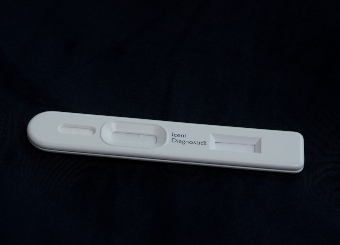As we went into the first lockdown one year ago, staff and students in the University’s three Faculties acted quickly to focus their attention on combating the pandemic.
According to Professor Peter Clayton, Deputy Dean of The University of Manchester’s Faculty of Biology, Medicine and Health, the collaborative nature of the city region was key to this cohesive response.
“We were at an advantage,” he reflects. “Under Health Innovation Manchester (HInM), which brings together the discovery science in the Greater Manchester (GM) universities with the translational power of the NHS, aligned to GM’s Health and Social Care Partnership, we have a ‘One Manchester’ system that could be directed very quickly to focus on the coronavirus pandemic.”
New focus
COVID-19 was the catalyst to demonstrate what HInM as our academic health science system could offer. Colleagues from the University’s three Faculties and HInM set up a rapid research response group to address the pandemic’s wideranging challenges.
The group’s aim was to minimise lives lost and the impact on the health and social care system and the community. It was central to One Manchester’s clinical trials initiative to help in the national effort to find effective treatments and to test vaccines as they became available.
“In the first months of lockdown, as experienced by other research institutes worldwide, the University was completely closed apart from essential research facility maintenance and COVID-related research,” Professor Clayton says.
“My role at the University includes clinical duties as a paediatrician at the Royal Manchester Children’s Hospital; at the start we had to do the majority of our work with families over the phone, so going to work was a very different experience, with everything strangely quiet.
“But saying that, everyone across the NHS and the universities had a common purpose. Despite the significant pressure, everyone wanted to help – a great example being the production of face visors by teams in the Faculties of Science and Engineering and Humanities, which could be delivered straight to front-line staff.”
The clinical frontline
In the early summer of 2020, as part of a massive effort across the city region, Manchester, along with other universities across the country, mobilised final-year students to support front-line NHS workers.
Everyone had a common purpose.
“We worked with the Medical Schools Council, the General Medical Council and the Nursing and Midwifery Council to fast-track graduates into joining clinical teams,” Professor Clayton says.
“They were able to support clinicians who’d worked solidly from early 2020. They brought fresh energy into highly stressful environments. It was needed and greatly appreciated.”
Continuing non-COVID research
The pandemic posed many challenges to the NHS in terms of maintaining regular services for patients and in pausing non-COVID-related research.
“Across the UK, clinical services adapted quickly to ensure as many ‘regular’ patients as possible could be managed promptly and safely. A great deal has been learnt about how to transform ways of delivering care,” Professor Clayton explains.
“This has also applied to clinical research. In the second and third waves of the pandemic, we’ve been instructed nationally to continue non-COVID research.
We’ve evolved and found ways to do this. It’s really important that we continue these new ways of working even when the pandemic has receded.”
As the national vaccine rollout continues, much of the rapid research response group’s activity has been stood down. However, the One Manchester approach will ensure that innovation continues to be delivered – for example, in new and repurposed drugs, diagnostic tests, medical devices, prevention strategies and new clinical pathways.
In the pioneering spirit of our city region, the University and its partners will work together to accelerate benefits for our community.
Read more about the University’s response to COVID-19.





